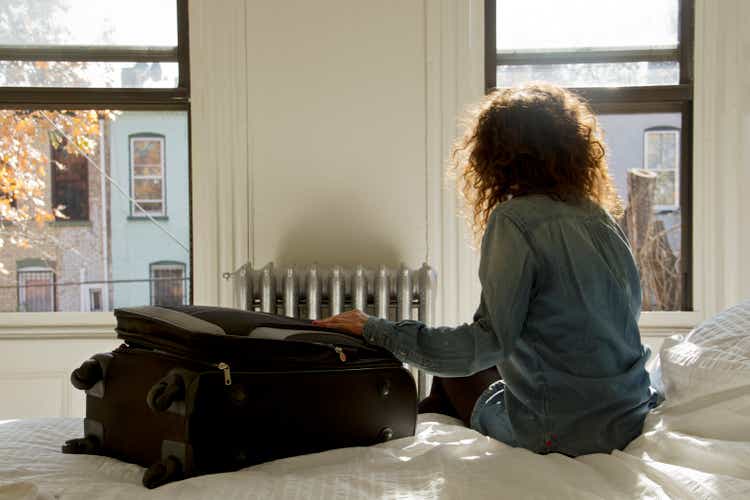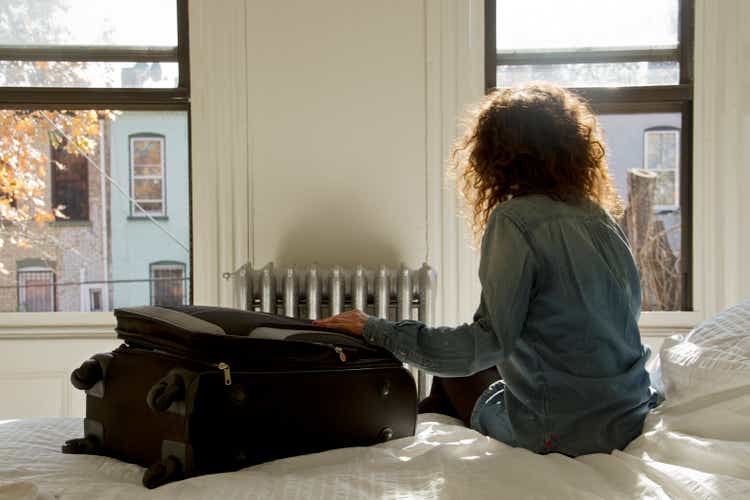
Georgie Wileman/DigitalVision via Getty Images
On the anniversary of New York City’s Local Law 18 (“LL18”) regulating short-term rentals, Airbnb (NASDAQ:ABNB) is urging city officials to end the restrictions in light of rising costs for hotels and apartments in the city.
Local Law 18 requires rentals for fewer than 30 days to be licensed with the city to verify compliance with occupancy rules and building codes, and requires hosts to be a permanent occupant of the units available for rent.
Airbnb (ABNB) claims that the strict rules have done little to combat the housing crisis in New York, as rents have risen as much as 3.4% during the first 11 months since LL18 was enacted. At the same time, short-term rentals on Airbnb (ABNB) have plummeted 83%, according to data analytics firm AirDNA.
And vacancy rates have remained virtually unchanged in NYC since the law took place, while Manhattan’s outer boroughs are left with “almost no accommodation options.” Prior to LL18, Airbnb (ABNB) listings were more geographically dispersed across the five boroughs compared to hotels with fewer than half of the total Airbnb (ABNB) listings in Manhattan.
“By rolling back parts of [LL18], the city can increase the supply of accommodations for consumers, support resident hosts, and revitalize local businesses that depend on tourism dollars,” the company said in a blog post.
New York City’s efforts to crack down on short-term rentals is not unique nor limited to Airbnb (ABNB) as Expedia’s (EXPE) VRBO is also required to adhere to certain restrictions. Many U.S. cities, including some in popular tourist destinations like Clearwater Beach, Florida and Aspen, Colorado have placed strict restrictions on short-term rentals, or banned them altogether, especially in areas zoned for residential use only.
And restrictions are not limited to U.S. destinations. Officials in London, Amsterdam, Berlin, and Barcelona all require landlords to obtain permits listing the property as tourist accommodations for all short-term stays, while new Airbnb (ABNB) and other short-term holiday rentals are banned in Florence, Italy’s historic city center.
